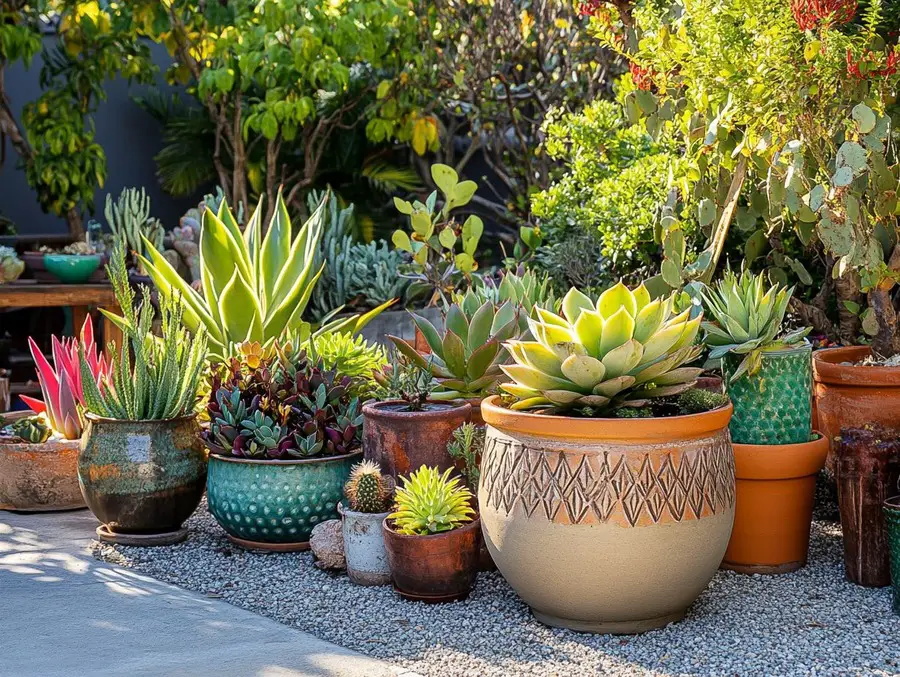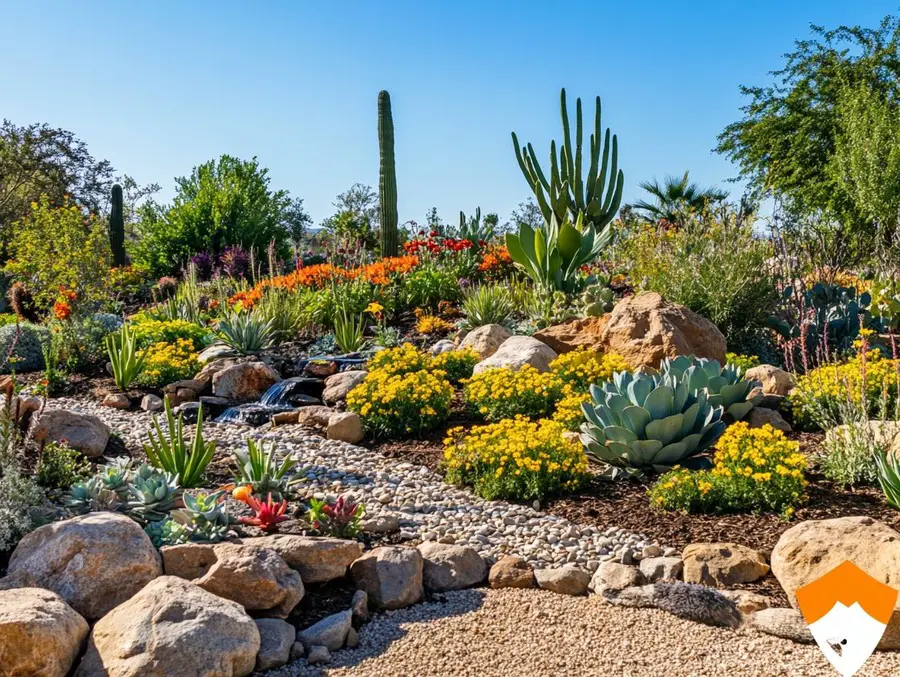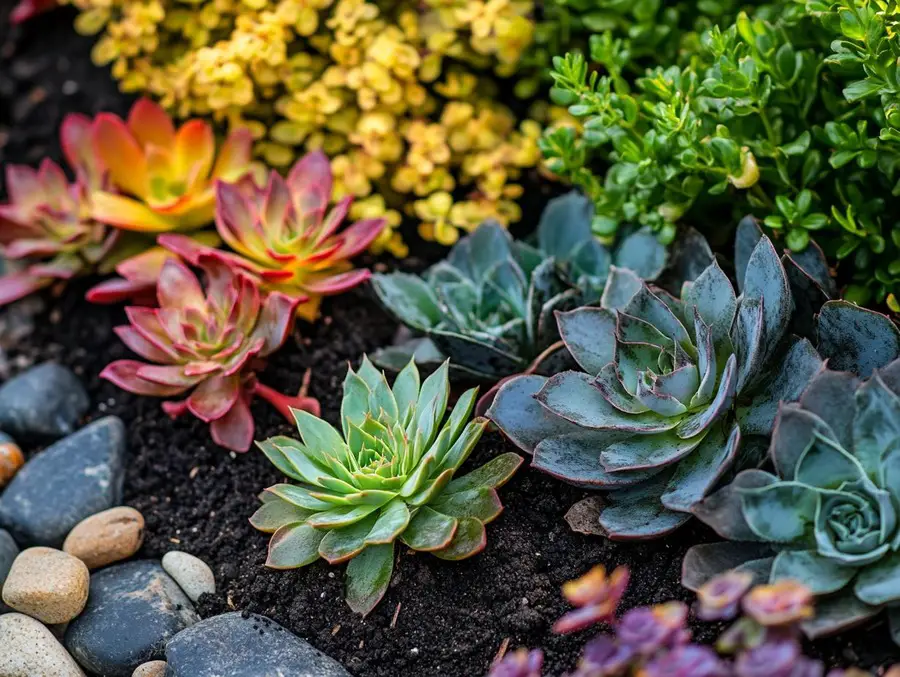We use affiliate links. If you purchase something using one of these links, we may receive compensation or commission.
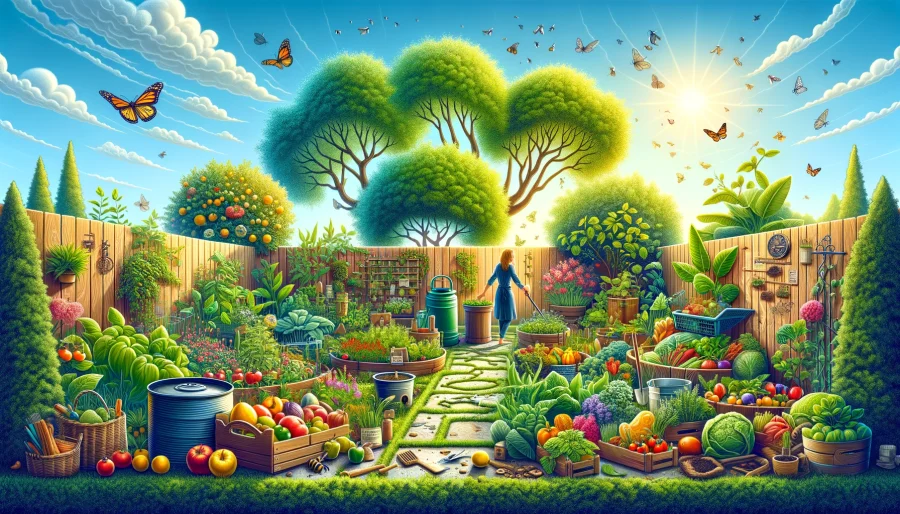
Discover the joy and rewards of backyard gardening benefits! From fresh produce to stress relief and environmental care, turn your backyard into a thriving oasis.
Backyard Gardening Benefits Key Takeaways:
- Backyard gardening benefits include:
- Access to fresh, organic produce
- Improvements in physical and mental health
- Positive environmental impacts through sustainability
- Economic savings on groceries
- Enhanced community engagement
- It’s an enriching experience that fosters a deeper connection with nature.
Dive into the world of backyard gardening benefits and uncover the joy of growing your own food.
It’s more than just a hobby; it’s a way to connect with nature, boost your health, and contribute to a sustainable future.
Whether you’re a seasoned green thumb or just starting out, learn how your backyard can become a source of fresh produce, relaxation, and environmental care.
Backyard Gardening Benefits
Backyard gardening is a rewarding and beneficial activity that allows individuals to cultivate their own fruits, vegetables, and herbs right in their own backyard.
Not only does it provide health benefits through access to fresh, organic produce, but it also has positive environmental and economic impacts.
In this article, we will explore the basic requirements for backyard gardening, the best plants to grow, how to start your own garden, and provide tips for successful gardening.
Whether you are a seasoned gardener or a beginner, there is something in this article for everyone looking to cultivate their green thumb.
What Is Backyard Gardening?
Backyard gardening involves cultivating a garden in the outdoor space behind one’s house, typically to grow a variety of plants, vegetables, and fruits.
Back garden
A back garden is a residential garden located at the rear of a property, on the other side of the house from the front garden. Such gardens have a special place in English suburban and gardening culture.
A back garden arises when the main building divides the surrounding gardens into two. This happens especially in the high density housing of British cities and towns. A semi-detached house typical of the British suburbs of the 20th century will have front gardens which face the road and provide access. The back gardens in such cases will be more secluded and access will typically be via the dwelling or by a path around the side. A front garden is a formal and semi-public space and so subject to the constraints of convention and law. However, the back garden is more private and casual, and so can be put to more purposes. Wikipedia
Engaging in backyard gardening not only provides a sustainable source of fresh produce but also offers a myriad of benefits.
It allows individuals to reconnect with nature, reduce stress, and enjoy physical activity in a peaceful setting.
From vibrant blooms to crunchy veggies, the range of plants that can thrive in a backyard garden is diverse.
Imagine plucking ripe tomatoes or fragrant herbs just a few steps from your kitchen!
This practice fosters a deeper appreciation for the environment while promoting healthier eating habits and family bonding.
Why Is Backyard Gardening Beneficial?
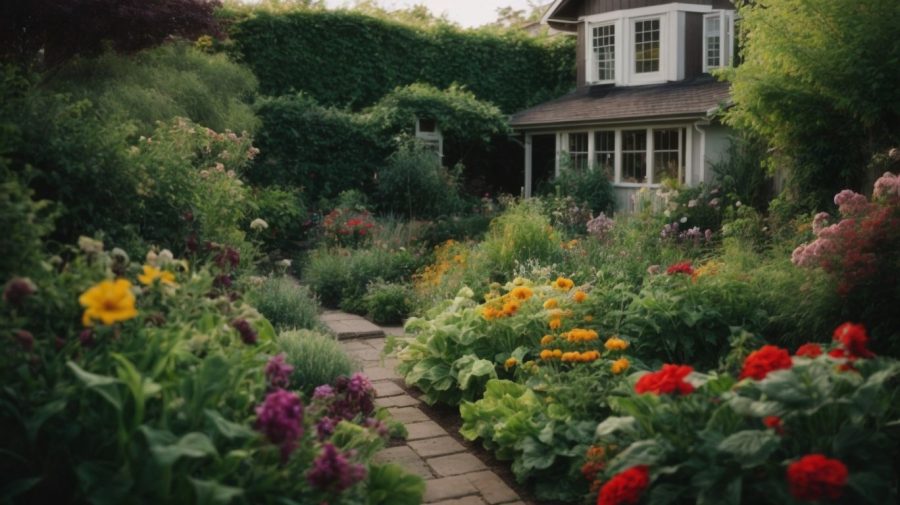
Backyard gardening offers a multitude of advantages, ranging from health benefits for the family to positive impacts on the environment and the local community.
One of the key benefits of backyard gardening is the ability to grow fresh, organic produce right at home.
This not only ensures a more nutritious and flavorful diet for the household but also reduces the reliance on store-bought fruits and vegetables that may have been treated with chemicals.
Along with promoting better health through access to homegrown produce, backyard gardening also plays a significant role in environmental sustainability.
By cultivating a diverse range of plants, individuals can contribute to biodiversity, support pollinators, and reduce the carbon footprint associated with the transportation and packaging of store-bought produce.
Health Benefits
Engaging in backyard gardening can significantly boost overall health by providing access to fresh produce, promoting outdoor exercise, and reducing stress levels.
Backyard gardening offers numerous health benefits that extend beyond just physical well-being.
By growing a variety of fruits, vegetables, and herbs, individuals can enjoy a diet rich in essential vitamins, minerals, and antioxidants.
This nutrient-dense produce can help support immunity, improve digestion, and even reduce the risk of chronic diseases.
The physical activity involved in maintaining a garden, such as planting, weeding, and watering, can contribute to increased fitness levels and enhanced muscle strength. This type of moderate exercise not only burns calories but also helps in improving flexibility and coordination.
Along with the physical advantages, spending time in nature and tending to plants has a profound impact on mental well-being.
The therapeutic effect of gardening has been linked to lower stress levels, reduced symptoms of anxiety and depression, and an overall sense of wellness.
It provides a calming and meditative activity that allows individuals to disconnect from daily stressors and connect with nature.
Environmental Benefits
Backyard gardening contributes to environmental well-being by fostering biodiversity, enhancing soil health, and reducing carbon footprint through locally grown produce.
Along with these benefits, backyard gardening plays a crucial role in promoting sustainable practices and resource conservation.
By growing a variety of plants, you create habitats for different species, thus contributing to a healthier ecosystem.
This not only supports pollinators such as bees and butterflies but also reduces the need for chemical pesticides which can harm the environment.
As you nurture your garden with organic matter and compost, you enrich the soil, improving its structure and fertility.
This, in turn, helps sequester carbon dioxide from the atmosphere, mitigating the effects of climate change.
Economic Benefits
Backyard gardening can lead to economic savings through reduced grocery expenses, support for local markets, and potential participation in community garden initiatives.
By growing your own fruits, vegetables, and herbs at home, you can significantly cut down on your weekly grocery bills. The initial investment in seeds, tools, and soil can often be recouped quickly through the abundance of fresh produce grown in your own backyard.
Surplus crops can be sold at local farmer’s markets or shared with neighbors, turning your hobby into a small revenue stream. This not only helps to offset your gardening costs but also contributes to the local economy by promoting sustainable, homegrown produce.
Participating in community garden initiatives not only fosters a sense of belonging and collaboration but also opens up opportunities for skill-sharing, resource pooling, and communal events. It enhances neighborhood ties, encourages healthy eating habits, and promotes environmental stewardship, making backyard gardening a powerful tool for community engagement and economic enablement.
What Are The Basic Requirements For Backyard Gardening?

To start a successful backyard garden, essential requirements include adequate sunlight, proper watering techniques, and nutrient-rich soil for optimal plant growth.
When considering sunlight exposure, your garden should receive at least 6-8 hours of direct sunlight daily to promote the photosynthesis process in plants.
This means choosing a spot with minimal shade and maximum access to sunlight throughout the day.
For watering schedules, it’s crucial to understand the specific needs of your plants as over or under-watering can lead to issues like root rot or dehydration.
Always check the moisture level of the soil before watering to ensure it’s not too dry or too soggy.
In terms of soil preparation, you can enrich your soil by adding organic matter such as compost, manure, or mulch to provide the necessary nutrients for plant growth.
Conduct a soil test to determine pH levels and nutrient deficiencies, and adjust accordingly to create a balanced growing environment for your garden.
Sunlight
Sunlight is a crucial element for the healthy growth of plants in a backyard garden, providing essential energy for photosynthesis and overall development.
Plants rely on sunlight to convert carbon dioxide and water into glucose and oxygen through the process of photosynthesis, which is vital for their survival and growth.
Different plants have varying light requirements; for instance, sun-loving vegetables like tomatoes and peppers need full sunlight for at least 6-8 hours a day to thrive.
While shade tolerant plants like lettuce or other greens can thrive even with 4 hours of sunlight.
Positioning garden beds strategically to maximize sunlight exposure is key to cultivating a flourishing garden.
Ensuring that taller plants do not shade out smaller ones and rotating gardening beds seasonally to optimize light distribution can significantly impact the productivity and health of your garden.
Water
Proper watering is critical for sustaining plant life in a backyard garden, ensuring adequate hydration and nutrient transport for healthy growth.
Establishing a consistent watering schedule is key to preventing under or overwatering, which can both have detrimental effects on plants.
Monitoring the soil moisture levels regularly helps in determining when and how much to water, considering factors like plant type, weather conditions, and soil composition.
If you’re not sure when to water use the finger test. Insert a finger an inch or two into the soil. If it’s dry water and if not wait a day and check again.
- One must avoid watering too shallowly, as this encourages shallow root growth, making plants more susceptible to stress and drought.
- Utilizing efficient irrigation methods such as drip irrigation or soaker hoses can help deliver water directly to the root zone, reducing water loss through evaporation and runoff.
Soil
High-quality soil forms the foundation of a successful backyard garden, providing essential nutrients, aeration, and moisture retention for plant roots.
In terms of soil composition, a balanced blend of sand, silt, and clay is crucial for optimum plant growth.
The pH levels of the soil also play a vital role in determining nutrient availability to plants; ideally, a slightly acidic to neutral pH range is favored.
The presence of adequate organic matter in the soil promotes microbial activity, improving soil structure and fertility.
This organic matter serves as a reservoir for essential nutrients that plants need to thrive.
A gardener’s attention to soil health ensures that plants receive the necessary nutrition and support to flourish and produce bountiful harvests.
What Are The Best Plants For Backyard Gardening?
A diverse range of plants thrives in backyard gardens, including vibrant vegetables, flavorful fruits, and aromatic herbs that cater to various culinary and aesthetic preferences.
In terms of vegetables, classics like tomatoes, cucumbers, and bell peppers are popular choices, providing a colorful and nutritious addition to your dishes.
For those with a sweet tooth, strawberries, and blueberries are delightful fruits that can be easily cultivated in a garden setting, offering a bountiful harvest during their respective seasons.
Herbs such as basil, mint, and rosemary add a burst of freshness to any culinary creation, making them a staple for home cooks.
With proper care and attention, these plants can flourish in a backyard space, bringing both visual appeal and practicality to your outdoor oasis.
Vegetables
Growing vegetables in a backyard garden offers a rewarding experience, yielding a bountiful harvest of nutritious and flavorful produce for culinary delights.
When planning a vegetable garden, it’s important to consider popular choices such as tomatoes, cucumbers, peppers, and lettuce, which thrive in many climates and are versatile in the kitchen.
- Tomatoes are a staple for many gardeners, with varieties like heirloom and cherry tomatoes adding vibrant colors and tastes to dishes.
- Cucumbers are refreshing and easy to grow, perfect for salads or pickling.
- Peppers come in various heat levels, from mild bell peppers to fiery habaneros, offering a range of flavors.
- Lettuce, with its crisp leaves, is ideal for fresh salads.
Fruits
Fruit-bearing plants add a touch of sweetness to backyard gardens, providing homegrown fruits that are rich in flavor, nutrients, and the joy of harvesting.
Growing a variety of fruits in your own backyard garden can be a rewarding experience.
- Common fruit trees to consider include dwarf apple trees, which offer a versatile fruit perfect for eating fresh, baking, or making cider.
- Citrus trees like oranges, lemons, and limes thrive in warmer climates, adding a burst of freshness to your garden.
Proper care is essential for fruit trees to flourish, requiring regular watering, fertilization, and pruning to promote healthy growth.
Herbs
Herbs are a delightful addition to backyard gardens, offering aromatic flavors, culinary versatility, and medicinal properties for homegrown herbal remedies.
Thyme, rosemary, basil, and mint are popular herb choices for home gardens due to their easy maintenance and numerous culinary uses.
Container gardening is a fantastic option for those with limited outdoor space, allowing individuals to grow herbs in pots, hanging baskets, or window boxes.
Not only do fresh herbs elevate the taste of dishes, but they also provide essential nutrients and antioxidants that contribute to overall health and well-being.
Incorporating herbs into everyday cooking or making soothing herbal teas can enhance both the flavor and wellness benefits derived from these natural treasures.
How To Start A Backyard Garden?
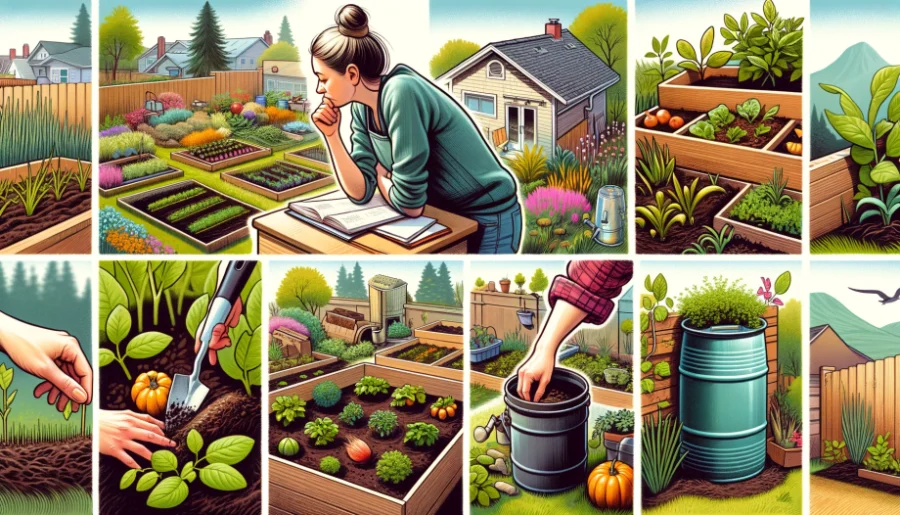
Embarking on a backyard gardening journey involves selecting the right location, preparing the soil, choosing suitable plants, and committing to regular care and maintenance practices.
When planning your backyard garden, start by scouting the area to identify the best spot with adequate sunlight and drainage.
Once you’ve found the perfect location, it’s time to prepare the soil, ensuring it is well-draining and nutrient-rich. You can test your soil pH levels and amend it accordingly for optimal plant growth.
Next, consider the plant selection process based on your region’s climate, the space available, and your personal preferences.
Choose The Right Location
Selecting the ideal location for a backyard garden is crucial, considering factors such as sunlight exposure, soil drainage, and proximity to water sources for plant health and vitality.
When planning your garden layout, it is essential to evaluate the amount of direct sunlight the area receives throughout the day.
Most plants thrive in full sun, which typically means at least six hours of direct sunlight.
If your space is shaded, opt for shade-loving plants like ferns or hostas.
Along with sunlight, the quality of soil plays a significant role in the success of your garden.
Soil testing can help you determine the pH levels and nutrient content, allowing you to amend the soil accordingly for optimal plant growth.
Keep in mind the proximity to a water source since regular watering is key to nurturing your plants and ensuring they remain hydrated during dry spells.
Prepare The Soil
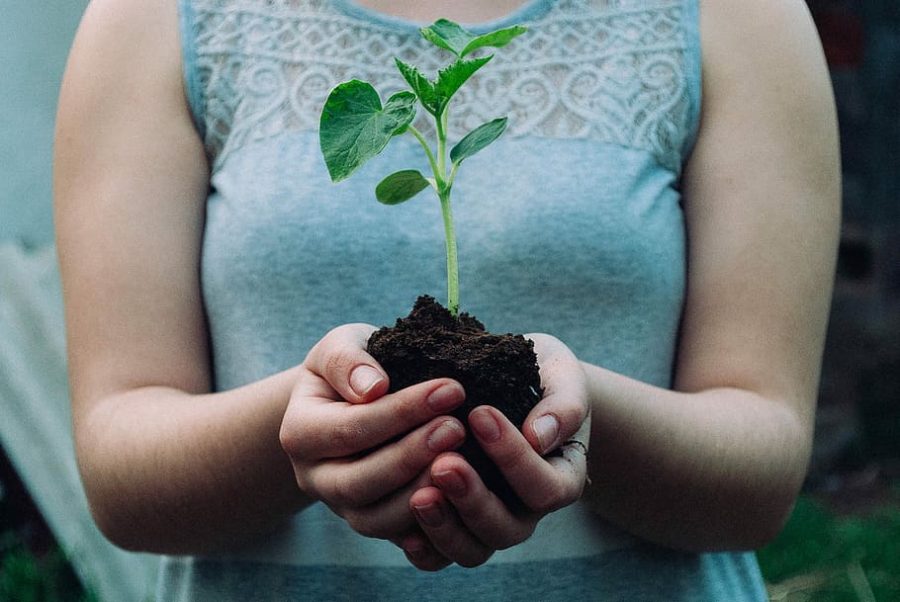
Soil preparation sets the groundwork for a thriving backyard garden, involving soil testing, amendment with organic matter, and creating optimal conditions for plant growth.
Soil testing is a crucial step that helps determine the current state of your soil’s health and nutrient levels.
By sending samples to a laboratory or using DIY testing kits, you can analyze factors like pH, nutrient content, and texture.
Once you have the test results, it’s time to incorporate organic matter into the soil.
This can be achieved through additions like compost, manure, or leaf mulch, which improve soil structure and provide essential nutrients for plants.
To further enrich the soil, consider adding natural fertilizers such as bone meal, fish emulsion, or seaweed extract.
These supplements enhance soil fertility, supporting robust plant growth and overall soil health.
Choose The Right Plants
Selecting the right plants for a backyard garden involves considering factors like climate suitability, space availability, and personal preferences for a diverse and productive garden space.
When choosing plants, it is essential to take into account the local climate to ensure they thrive in the garden’s environment.
Plants indigenous to the region or those labeled as suitable for the hardiness zone in which the garden is located are great options for a successful garden.
- Optimizing space utilization in a backyard garden requires careful planning. Vertical gardening, hanging baskets, and raised beds are efficient ways to make the most of limited space while showcasing a variety of plants.
- By incorporating a range of plant species, such as flowers, vegetables, herbs, and shrubs, you can create a visually appealing and functional garden that attracts pollinators and provides different harvests throughout the seasons.
Water And Maintain The Garden
Regular watering and maintenance routines are essential for sustaining a healthy backyard garden, ensuring proper hydration, nutrient uptake, and pest prevention for thriving plants.
In terms of watering, it’s crucial to strike a balance. Too little water can lead to wilting and stunted growth, while overwatering can cause root rot and other issues.
Consider investing in a soaker hose or drip irrigation system to deliver water directly to the roots where it’s needed most. Mulching around plants can help retain moisture and reduce the frequency of watering cycles.
For plant care, regular pruning, weeding, and fertilizing are key tasks.
Pruning promotes healthy growth and flowering, while weeding prevents competition for resources.
Choose organic fertilizers to nourish your plants without harmful chemicals.
What Are Some Tips For Successful Backyard Gardening?
Achieving success in backyard gardening requires strategic practices such as crop rotation, natural pest control methods, and nutrient-rich composting to maintain a vibrant and thriving garden ecosystem.
Crop rotation is a key technique that helps replenish soil nutrients by alternating crops each season, preventing depletion and promoting healthy plant growth.
By diversifying the types of plants grown, gardeners can disrupt pest and disease cycles, reducing the need for chemical interventions.
Incorporating natural pest control methods, such as companion planting or introducing beneficial insects like ladybugs, can help keep pest populations in check without harming the environment.
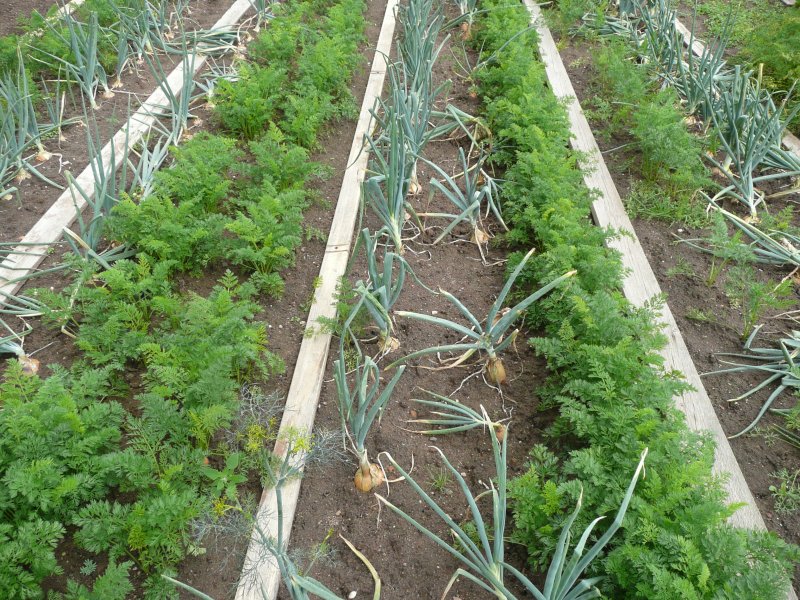
Embracing the benefits of composting not only enriches the soil with essential nutrients but also reduces waste and fosters a more sustainable gardening approach.
Rotate Crops
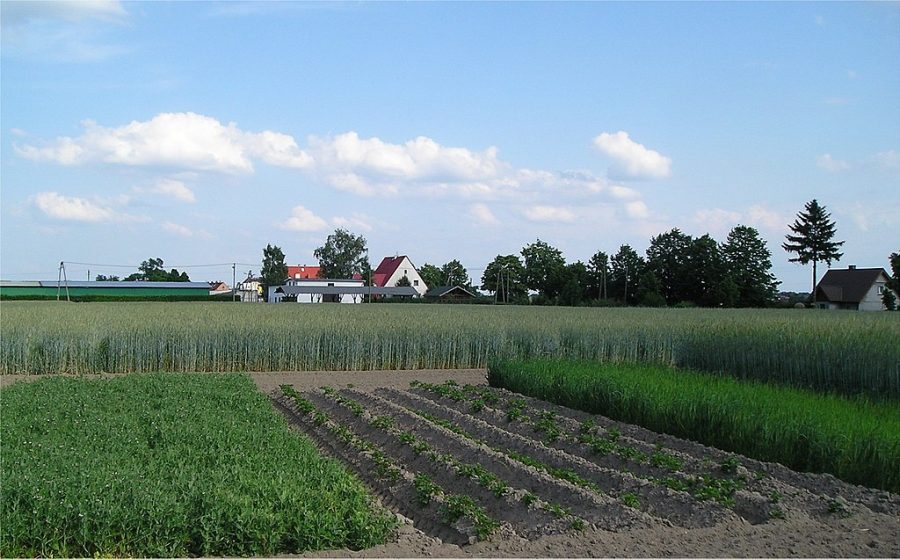
Implementing crop rotation practices in a backyard garden helps maintain soil fertility, prevent pest infestations, and promote overall plant health by varying planting locations and crop types.
Crop rotation plays a crucial role in sustainable gardening practices.
By rotating crops annually, gardeners can replenish soil nutrients naturally, reducing the need for synthetic fertilizers.
This practice also helps break the lifecycle of pests and diseases specific to certain crops, leading to healthier plants.
Crop rotation fosters soil health by preventing soil depletion and erosion through its ability to diversify plant types and root structures.
Different crops have unique nutrient requirements, and rotating them ensures a more balanced utilization of soil nutrients.
Use Natural Pest Control Methods
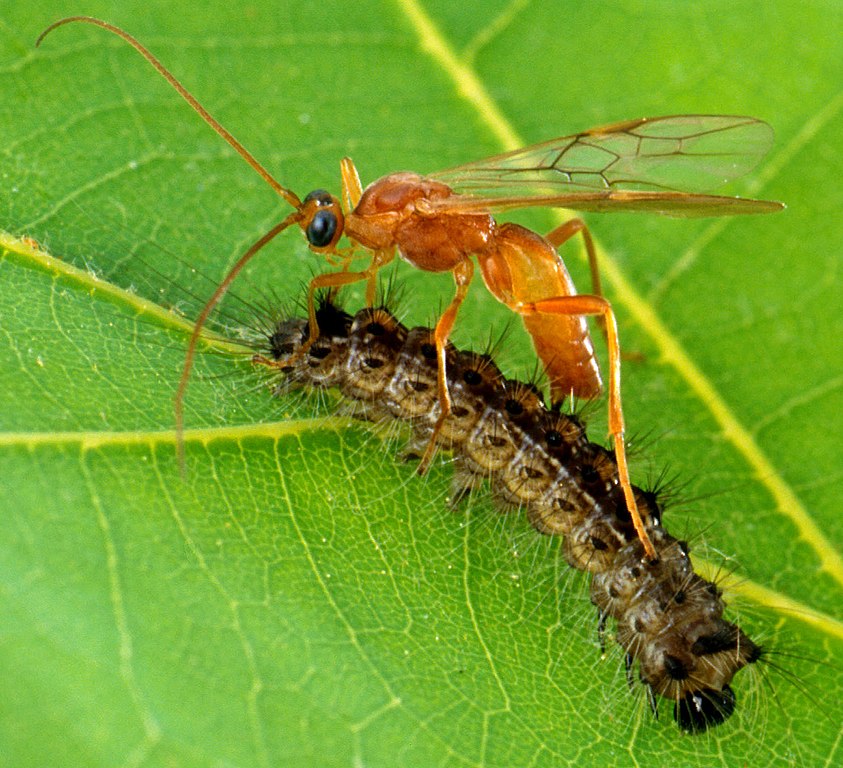
Utilizing natural pest control methods aka Biological Pest Control in a backyard garden reduces reliance on chemicals, preserves beneficial insects, and safeguards plant health through eco-friendly pest management approaches.
One of the key benefits of incorporating natural pest control in your backyard garden is the promotion of a balanced ecosystem.
By avoiding harsh chemicals, you allow beneficial insects such as ladybugs and lacewings to thrive, which in turn helps in controlling harmful pests naturally.
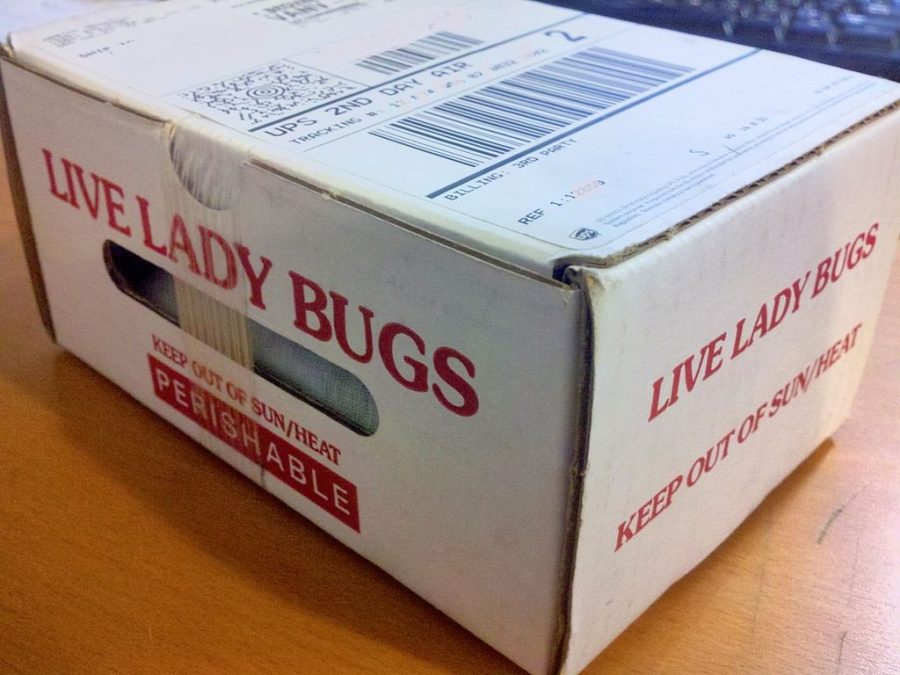
This practice not only protects the plant’s health but also contributes to the overall sustainability of your garden.
Companion planting, for instance, involves pairing certain plants that support each other’s growth and deter pests, creating a harmonious environment for your plants to flourish.
Compost
Composting organic waste materials enriches the soil, promotes nutrient recycling, and reduces environmental impact by creating a sustainable source of natural fertilizers for backyard gardens.
One of the key benefits of composting in backyard gardening is the improvement it brings to soil health.
When organic waste decomposes, it releases essential nutrients that nourish plants, resulting in healthier and more vibrant growth.
This process enhances the structure of the soil, making it more porous and better able to retain moisture, promoting root growth and overall plant resilience.
Composting helps reduce the need for chemical fertilizers, thus contributing to a more environmentally friendly approach to gardening.
By recycling kitchen scraps and yard waste, gardeners can divert waste from landfills and reduce greenhouse gas emissions.
Utilizing compost also helps suppress plant diseases and pests naturally, creating a well-balanced ecosystem in your garden.
Backyard Gardening Benefits FAQs
Q. What are the benefits of backyard gardening?
A. Backyard gardening has numerous benefits, including providing fresh and organic produce, improving mental and physical health, and reducing carbon footprint by promoting sustainable practices.
Q. How does backyard gardening promote sustainability?
A. Backyard gardening reduces the need for transportation and packaging of produce, thus decreasing carbon emissions and promoting sustainable living.
Q. What are the mental health benefits of backyard gardening?
A. Gardening has been shown to reduce stress, anxiety, and depression, and can serve as a form of therapy and relaxation for individuals of all ages.
Q. How can backyard gardening benefit my physical health?
A. Gardening is a great form of exercise that can improve strength, flexibility, and cardiovascular health. It also provides access to fresh and nutritious produce, which can lead to a healthier diet.
Q. What are the economic benefits of backyard gardening?
A. Backyard gardening can save you money on groceries by providing fresh and organic produce at no cost. It can also be a source of income if you choose to sell your excess produce.
Q. Can backyard gardening benefit the environment?
A. Yes, backyard gardening can benefit the environment by reducing carbon footprint, promoting sustainable practices, and providing a habitat for pollinators and beneficial insects.
Backyard Gardening Benefits Conclusion
Backyard gardening brings a myriad of benefits, enhancing not just your home but also your health and environment.
It’s an engaging activity that nurtures more than plants; it cultivates a sense of well-being, sustainability, and community.
Let’s dive into the aspects that make backyard gardening a fulfilling endeavor.
Health and Wellness
Gardening in your backyard is a fantastic way to boost physical health through regular exercise and access to fresh, nutritious produce.
It also benefits mental health by providing a peaceful escape from the hustle and bustle of daily life, reducing stress, and promoting relaxation.
Environmental Impact
By gardening at home, you contribute positively to the planet.
This sustainable practice supports biodiversity, helps reduce your carbon footprint, and minimizes the need for water and chemicals, fostering a healthier environment.
Economic Savings
Growing your own food can lead to significant savings on grocery bills.
Moreover, it can create opportunities for extra income through the sale of surplus produce or plants, making it economically beneficial.
Community Engagement
Backyard gardening can strengthen community bonds by encouraging the sharing of produce, knowledge, and resources.
It fosters a sense of belonging and collective responsibility for environmental stewardship.
Learn more: Backyard Gardening: A Comprehensive Guide
Related Content
Visit my Amazon Influencer Page for videos and gardening products Grow Your Own Garden





